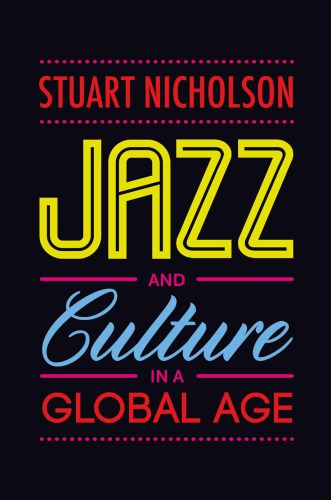
Jazz and Culture in a Global Age
- اطلاعات
- نقد و بررسی
- دیدگاه کاربران
نقد و بررسی

June 1, 2014
Where most books on jazz focus solely on the music or musicians, this volume explores the form as an influential commodity of culture. British jazz historian and biographer (Ella Fitzgerald; Jazz-Rock) Nicholson presents a very well-constructed study of the way in which this distinctly American art form not only spread throughout the world, but did so in such a way that it was inextricably linked with America and its changing status in the global landscape. From how jazz was adopted and integrated as it entered other countries to the many expansions of the form in the modernist period to the place jazz now holds in a world of single-song downloads, Nicholson treats his subject with a healthy balance of reverence and objective analysis. He also covers a wide array of artists and styles in his examples, painting a very full portrait of an evolving craft. VERDICT This enjoyable and extensively researched book is informative and thought-provoking, yet slightly academic in tone and would therefore be a better fit for academic or larger libraries, or true fans of the form.--Peter Thornell, Hingham P.L., MA
Copyright 2014 Library Journal, LLC Used with permission.

June 1, 2014
In this contentious and oddly organized book, noted British jazz writer Nicholson first takes on the state of jazz around the world today, surveying a broad spectrum of international music while taking exception, as it were, to American exceptionalism. Along the way, he poses some interesting questions about how music is not only performed differently in different cultures but may in fact be heard or understood differently. He enlists some cogent psychological theorizing about our comprehension of music. He then goes back in time (certainly before the global age of the title) to tilt at the windmill of bebop's modernism, arguing insteadand controversiallyfor the prior modernism of Paul Whiteman and the preeminence of Stan Kenton. A few years back, Richard Sudhalter strained at making the case for white jazzmen's major role in a music often identified, albeit too exclusively, as black, and Nicholson implicitly extends this contrarian interpretation further yet, though not very convincingly.(Reprinted with permission of Booklist, copyright 2014, American Library Association.)




دیدگاه کاربران